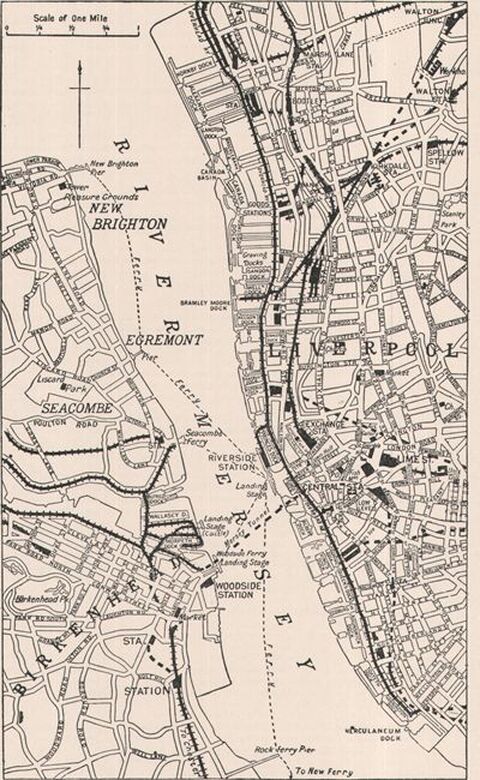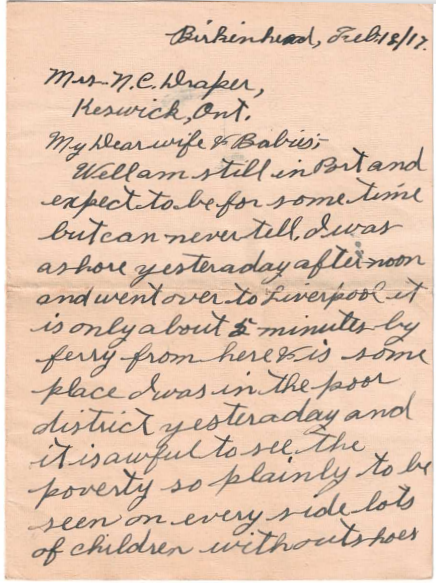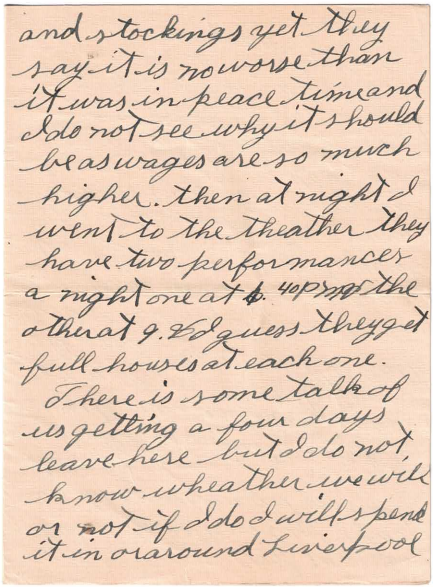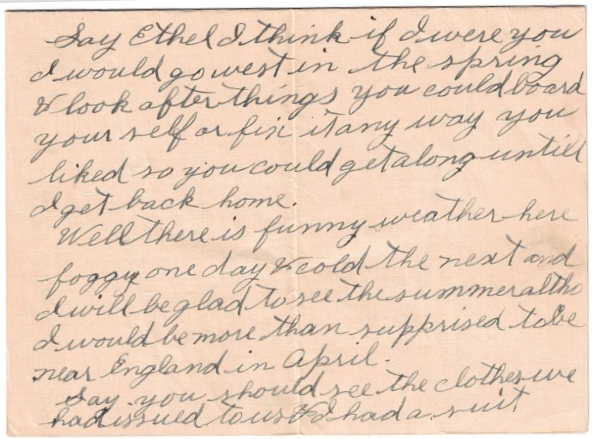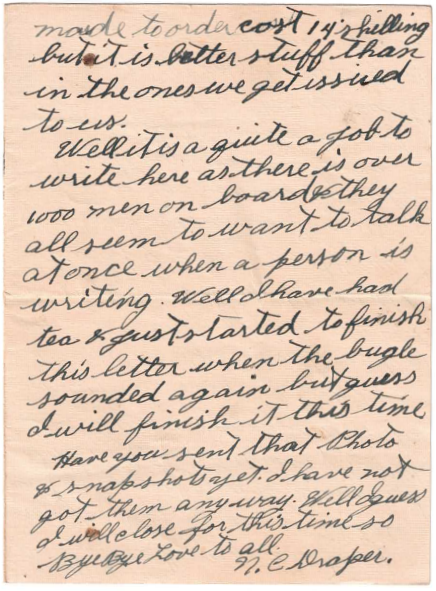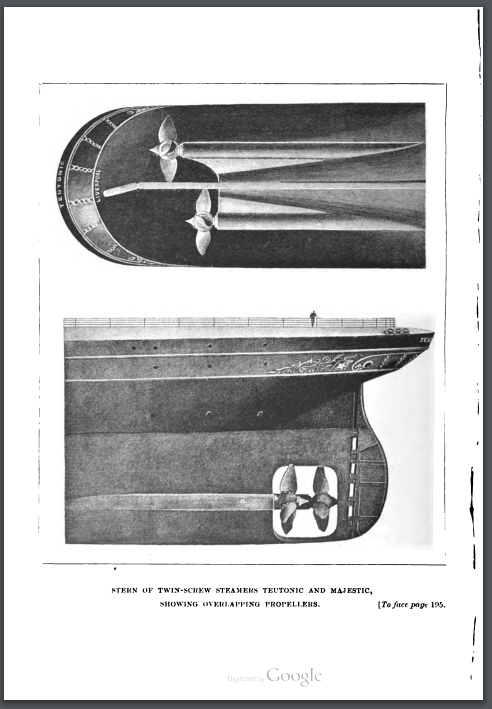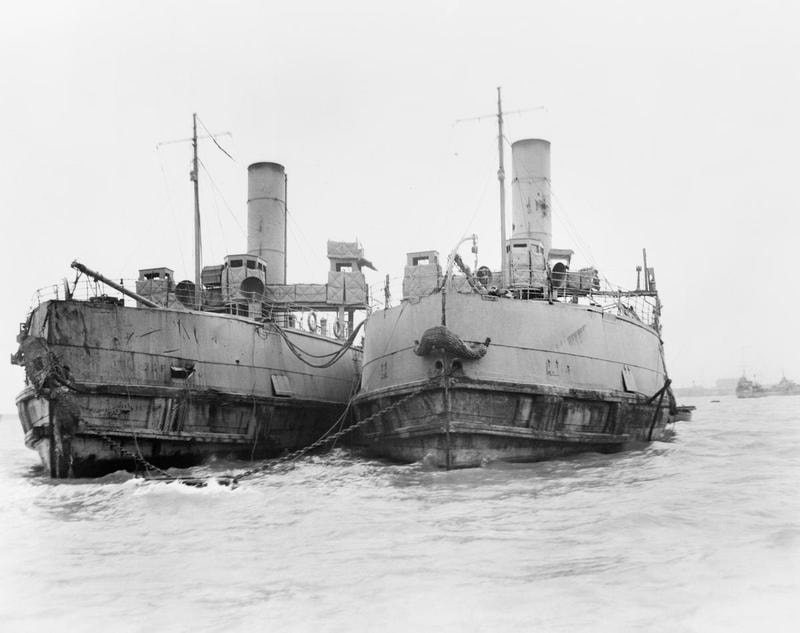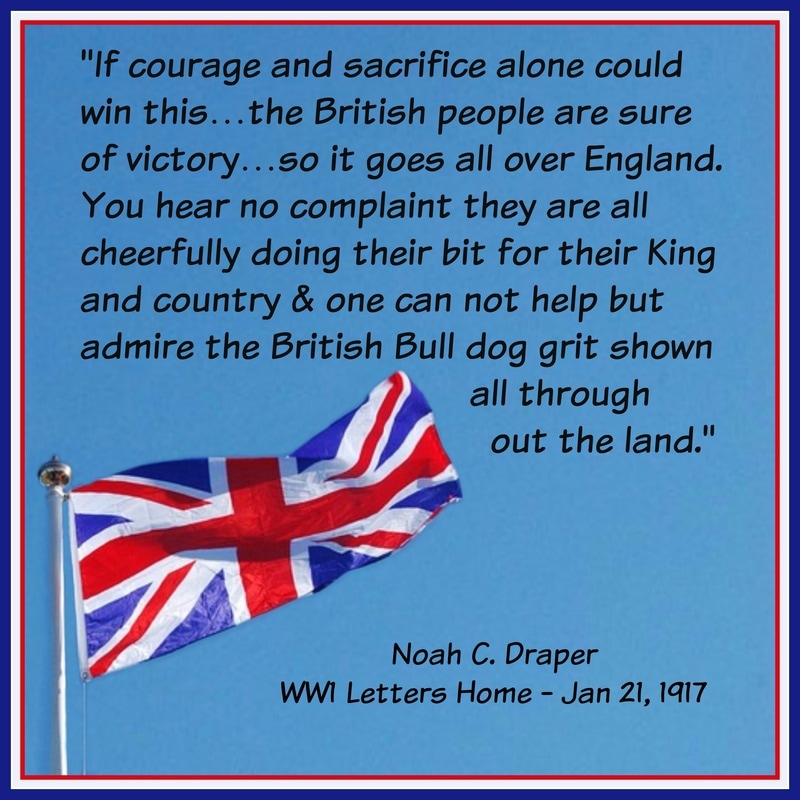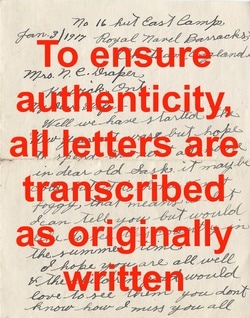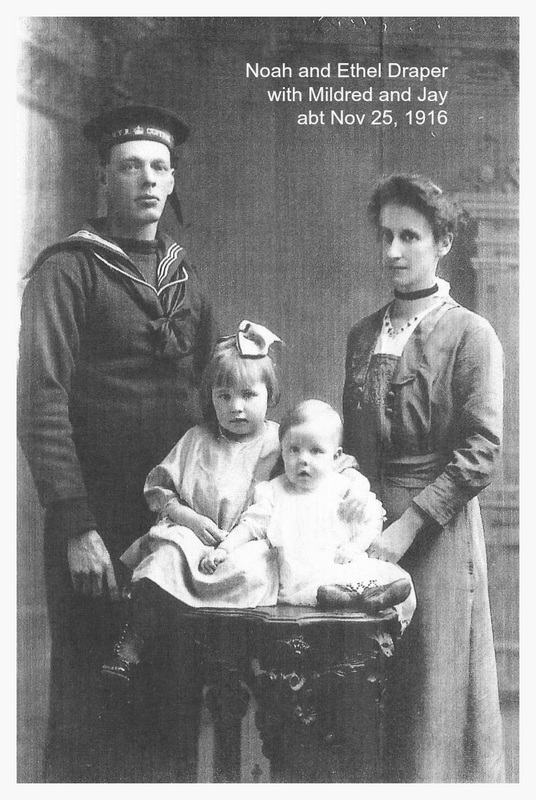Dated: Feb 18, 1917
Mailed from: Birkinhead (Birkenhead, England)
Attached to: HMS Bacchante
Profession: Farmer, Temporary Sailor
Rank: Ordinary Seaman, Royal Naval Canadian Volunteer Reserve
Addressed to: Mrs. N.C. Draper, Keswick, Ont.
Relationship: Wife
Writing instrument: Fountain Pen with Black Ink
Writing Paper: 1 sheet 9" x 6" medium weight, smooth, linen-look, folded into a 4-page booklet. Noah hasn't numbered the pages, and he's using a form he's used often before where his first page is the front "cover", then he's opened it and written on the right side, then moved over to the left side - turned the page sideways - and written there, and finally, he's closed it and written on the back. For clarity, I'm posting the pages in the order they were meant to be read.
People mentioned in this letter:
Ethel* - Ethel Isabel Draper, 27 yrs old, Noah's wife of 6 yrs
Places/things mentioned in this letter:
ferry** across the River Mersey
Birkenhead - town across the River Mersey from Liverpool, England
Liverpool - maritime city in northwest England
poverty** in Liverpool
Word or Phrase Use:
snapshot - photograph
Legend:
* Look under the Categories/Labels in the right side column for more posts on this
person/place/thing, or use the search box in the header at the top of this page
** see History Notes below
| Birkinhead, Feb. 18./17. |
| Mrs. N.C. Draper, Keswick, Ont. My Dear wife & Babies;- Well am still in Port and expect to be for some time but can never tell. I was ashore yesteraday after-noon and went over to Liverpool it is only about 5 minutes by ferry from here & is some place I was in the poor district yesteraday and it is awful to see the poverty so plainly to be seen on every side lots of children without shoes |
| and stockings yet they say it is no worse than it was in peace time and I do not see why it should be as wages are so much higher. then at night I went to the theather they have two performances a night one at 640 PM & the other at 9. & I guess they get full houses at each one. There is some talk of us getting a four days leave here but I do not know wheather we will or not if I do I will spend it in or around Liverpool |
| Say Ethel I think if I were you I would go west in the spring & look after things you could board your self or fix it any way you liked so you could get along untill I get back home. Well there is funny weather here foggy one day & cold the next and I will be glad to see the summer altho I would be more than supprised to be near England in April. Say you should see the clothes we had issued to us & I had a suit |
| made to order cost 14 shilling but it is better stuff than in the ones we get issued to us. Well it is a quite a job to write here as there is over 1000 men on board & they all seem to want to talk at once when a person is writing. Well I have had tea & just started to finish this letter when the bugle sounded again but guess I will finish it this time. Have you sent that Photo & snapshots yet. I have not got them anyway. Well I guess I will close for this time so ByeBye Love to all. N.C. Draper. |
History Notes
History Note 1 - Ferry across the River Mersey
In this letter, Noah had time off to explore the Birkenhead area where the HMS Bacchante is docked and used it to take a ferry across the River Mersey to Liverpool. (Yes, I now have the 1965 hit song Ferry Cross the Mersey by Gerry & The Pacemakers running through my head.)
By the first decade of the 20th century, paddlewheel ferries had been replaced by modern single or twin-screw steamers such as in the following illustration from the book, The Atlantic Ferry by Arthur J. Maginnis, published in 1900 by Whittaker and Co, London.
For their service, King George V renamed the steamers Royal Daffodil and Royal Iris. On May 18, 1918, they returned to River Mersey ferry service where they received a heroes' welcome.
At the start of the 20th century, Liverpool was one of the most industrialized cities in England, and is said to have grown faster than London during the latter decades of the 1800's. For a large part, this was due to the seven miles of docks running alongside Liverpool, with many more across the River Mersey at Birkenhead and Merseyside which ensured the movement of goods manufactured in the area.
The numerous cotton, woollen and textile mills, iron and steel manufacturing plants, potteries, car manufacturing plants, chemlcal plants, not to mention the shipbuilding and repair dry docks, needed workers. People flocked to Liverpool for this purpose. But unlike a steady weekly job that could be counted on, a majority of the employment in Liverpool was casual day labour where men and women spent hours each day just trying to get a job. The work was dangerous with no safety laws in effect, and many lost their lives while trying to make a living. Single parents had no choice but leave their children alone while they worked. Child labour was also used, especially in the textile mills, but often children were left on their own in the streets while their parents strived to make enough money to feed them.
As someone born to a loving family on the rich farmland north of Toronto, Noah wasn't used to the hopeless poverty and neglected children of the Liverpool slums. It seemed so senseless to him.

